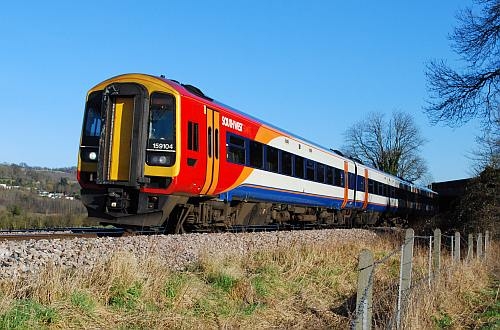Specifically 11 class 158s, 22 class 159/0, and eight class 159/1 DMUs, plus 45 class 444, 99 class 450/0, 28 class 450/5 and 36 class 458 EMUs, will be fitted with the system which collects real-time data from a huge range of sources to calculate the ideal speed of the train so it arrives exactly on time. The system, which is already in use in Denmark, can also help to reduce environmental impact by reducing energy consumption as well as increasing network capacity.
Installation is expected to start in May and the first pilots will begin on lines to the west of England in the autumn. Fleet deployment will take place gradually as drivers are trained and installations completed, with the entire rollout expected in 2016.
"The first phases of the project have been concluded and we can already see the positive results of involving the drivers in the early design of the user interface," says Mr Sune Edinger, CEO of Cubris.
SWT says the investment is part of its efforts to increase capacity on its network. SWT placed a £210m order with Siemens in September 2014 for 30 five-car Desiro EMUs, while it is rolling out 108 refurbished coaches following a £65m investment, with both set to increase peak capacity by 30% by 2018. Its wider capacity enhancement plan, which it is delivering in partnership with Network Rail, also includes extending station platforms and reopening the former Waterloo International Terminal for domestic services.

